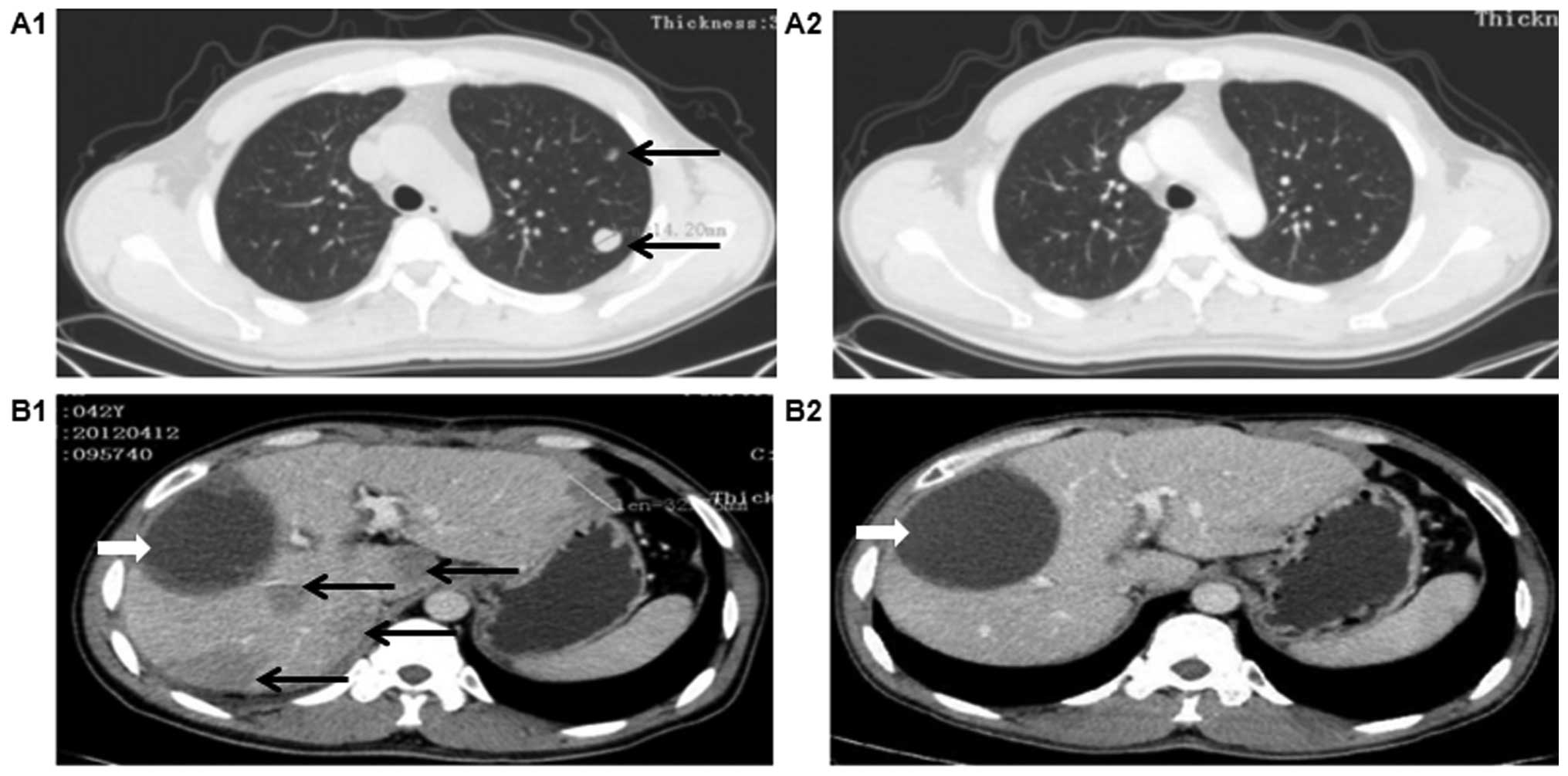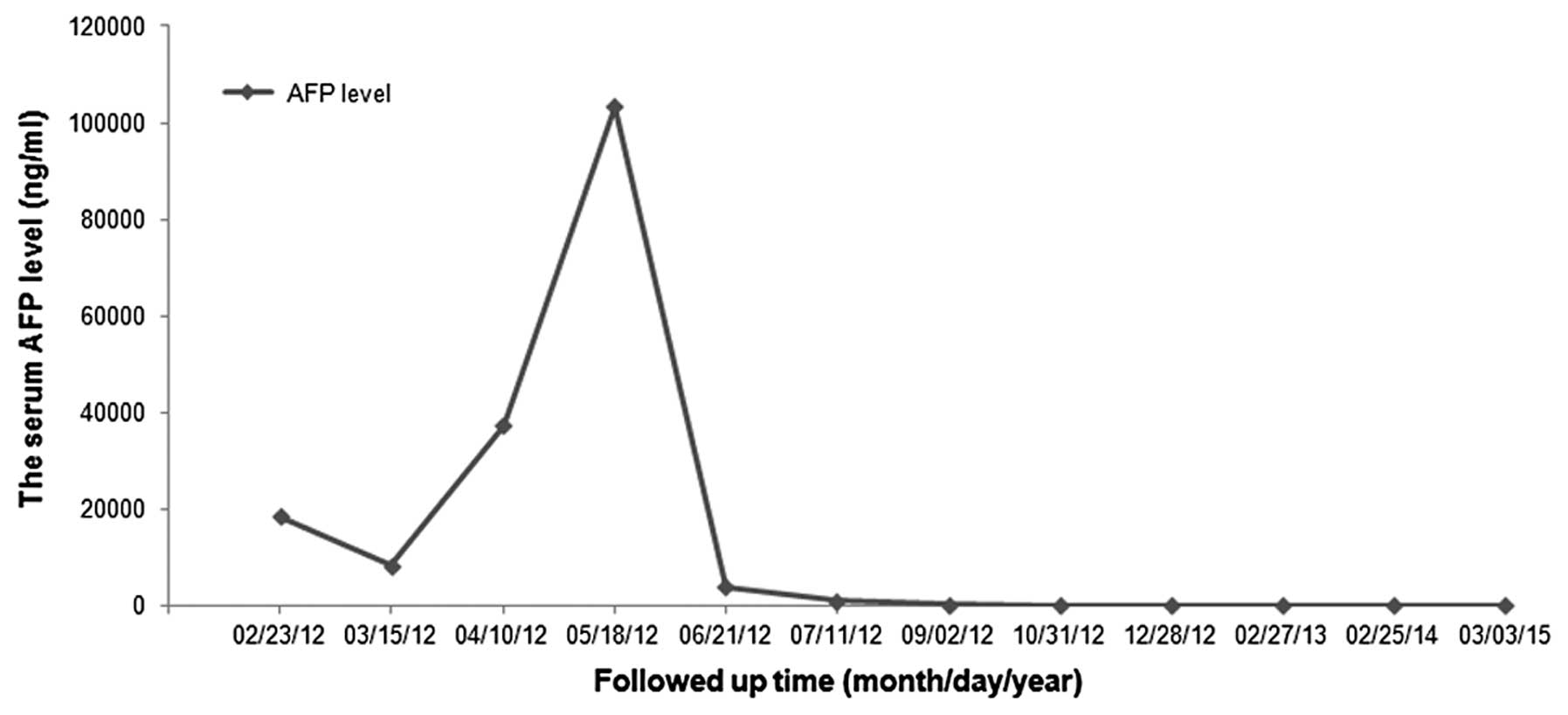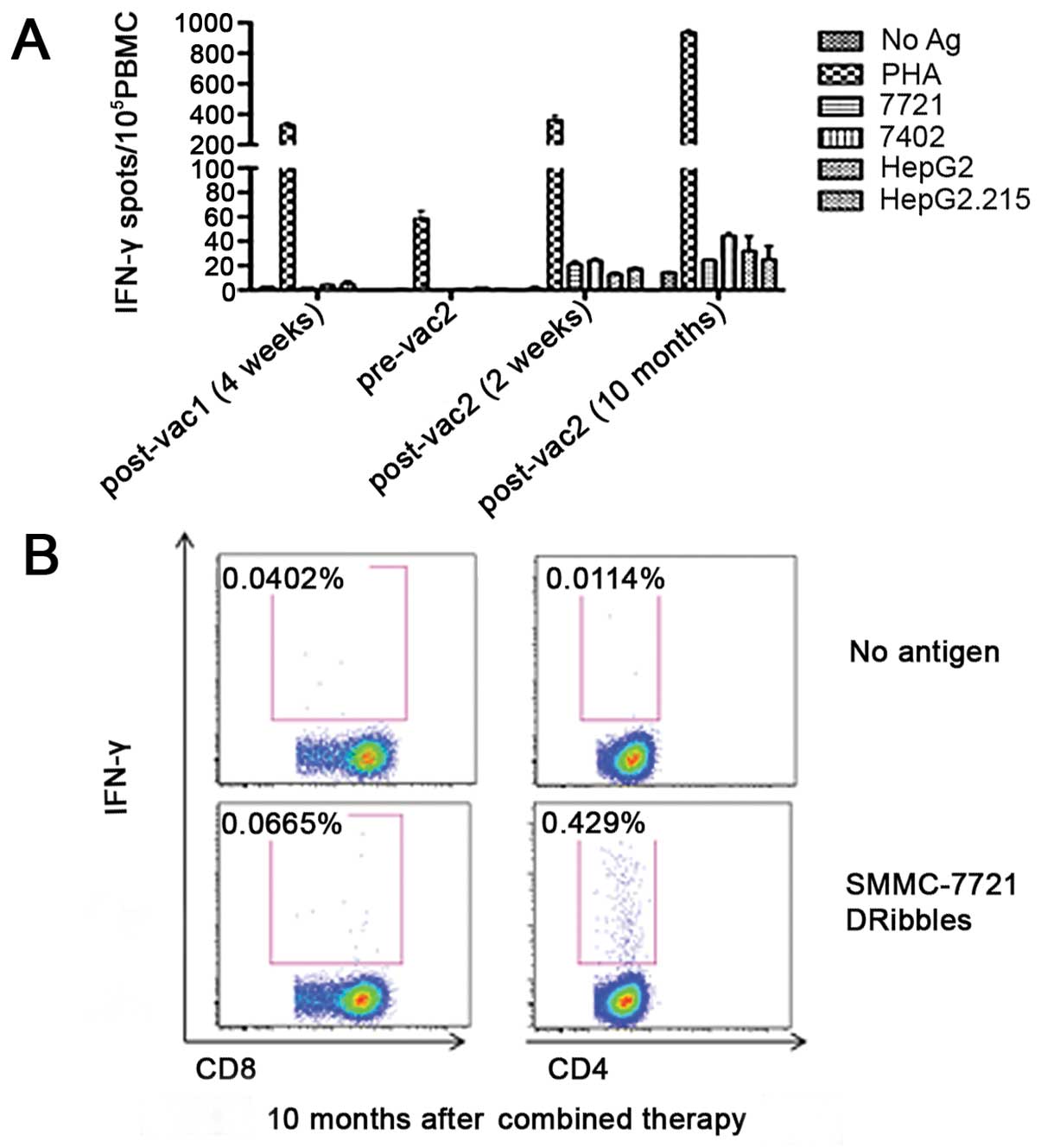|
1
|
Au JS and Frenette CT: Management of
hepatocellular carcinoma: Current status and future directions. Gut
Liver. 9:437–448. 2015. View
Article : Google Scholar : PubMed/NCBI
|
|
2
|
Colagrande S, Regini F, Taliani GG, Nardi
C and Inghilesi AL: Advanced hepatocellular carcinoma and
sorafenib: Diagnosis, indications, clinical and radiological
follow-up. World J Hepatol. 7:1041–1053. 2015. View Article : Google Scholar : PubMed/NCBI
|
|
3
|
Takeishi K, Maeda T, Tsujita E, Yamashita
Y, Harada N, Itoh S, Harimoto N, Ikegami T, Yoshizumi T, Shirabe K
and Maehara Y: Predictors of intrahepatic multiple recurrences
after curative hepatectomy for hepatocellular carcinoma. Anticancer
Res. 35:3061–3066. 2015.PubMed/NCBI
|
|
4
|
Llovet JM, Ricci S, Mazzaferro V, Hilgard
P, Gane E, Blanc JF, de Oliveira AC, Santoro A, Raoul JL, Forner A,
et al: Sorafenib in advanced hepatocellular carcinoma. N Engl J
Med. 359:378–390. 2008. View Article : Google Scholar : PubMed/NCBI
|
|
5
|
Cheng AL, Kang YK, Chen Z, Tsao CJ, Qin S,
Kim JS, Luo R, Feng J, Ye S, Yang TS, et al: Efficacy and safety of
sorafenib in patients in the Asia-Pacific region with advanced
hepatocellular carcinoma: A phase III randomised, double-blind,
placebo-controlled trial. Lancet Oncol. 10:25–34. 2009. View Article : Google Scholar : PubMed/NCBI
|
|
6
|
Pawlik TM, Reyes DK, Cosgrove D, Kamel IR,
Bhagat N and Geschwind JF: Phase II trial of sorafenib combined
with concurrent transarterial chemoembolization with drug-eluting
beads for hepatocellular carcinoma. J Clin Oncol. 29:3960–3967.
2011. View Article : Google Scholar : PubMed/NCBI
|
|
7
|
Han G, Yang J, Shao G, Teng G, Wang M,
Yang J, Liu Z, Feng G, Yang R, Lu L, et al: Sorafenib in
combination with transarterial chemoembolization in Chinese
patients with hepatocellular carcinoma: A subgroup interim analysis
of the START trial. Future Oncol. 9:403–410. 2013. View Article : Google Scholar : PubMed/NCBI
|
|
8
|
Bhoori S, Toffanin S, Sposito C, Germini
A, Pellegrinelli A, Lampis A and Mazzaferro V: Personalized
molecular targeted therapy in advanced, recurrent hepatocellular
carcinoma after liver transplantation: A proof of principle. J
Hepatol. 52:771–775. 2010. View Article : Google Scholar : PubMed/NCBI
|
|
9
|
Yi Y, Zhou Z, Shu S, Fang Y, Twitty C,
Hilton TL, Aung S, Urba WJ, Fox BA, Hu HM and Li Y:
Autophagy-assisted antigen cross-presentation: Autophagosome as the
argo of shared tumor-specific antigens and DAMPs. Oncoimmunology.
1:976–978. 2012. View Article : Google Scholar : PubMed/NCBI
|
|
10
|
Ye W, Xing Y, Paustian C, van de Ven R,
Moudgil T, Hilton TL, Fox BA, Urba WJ, Zhao W and Hu HM:
Cross-presentation of viral antigens in dribbles leads to efficient
activation of virus-specific human memory T cells. J Transl Med.
12:1002014. View Article : Google Scholar : PubMed/NCBI
|
|
11
|
Su S, Zhou H, Xue M, Liu JY, Ding L, Cao
M, Zhou ZX, Hu HM and Wang LX: Anti-tumor efficacy of a
hepatocellular carcinoma vaccine based on dendritic cells combined
with tumor-derived autophagosomes in murine models. Asian Pac J
Cancer Prev. 14:3109–3116. 2013. View Article : Google Scholar : PubMed/NCBI
|
|
12
|
Bruix J and Sherman M: Practice Guidelines
Committee, American Association for the Study of Liver Diseases:
Management of hepatocellular carcinoma. Hepatology. 42:1208–1236.
2005. View Article : Google Scholar : PubMed/NCBI
|
|
13
|
Lapenta C, Santini SM, Spada M, Donati S,
Urbani F, Accapezzato D, Franceschini D, Andreotti M, Barnaba V and
Belardelli F: IFN-alpha-conditioned dendritic cells are highly
efficient in inducing cross-priming CD8+ T cells against
exogenous viral antigens. Eur J Immunol. 36:2046–2060. 2006.
View Article : Google Scholar : PubMed/NCBI
|
|
14
|
Li Y, Wang LX, Pang P, Cui Z, Aung S,
Haley D, Fox BA, Urba WJ and Hu HM: Tumor-derived autophagosome
vaccine: Mechanism of cross-presentation and therapeutic efficacy.
Clin Cancer Res. 17:7047–7057. 2011. View Article : Google Scholar : PubMed/NCBI
|
|
15
|
Eisenhauer EA, Therasse P, Bogaerts J,
Schwartz LH, Sargent D, Ford R, Dancey J, Arbuck S, Gwyther S,
Mooney M, Rubinstein L, Shankar L, Dodd L, Kaplan R, Lacombe D and
Verweij J: New response evaluation criteria in solid tumours:
revised RECIST guideline (version 1.1). Eur J Cancer. 45:228–247.
2009. View Article : Google Scholar : PubMed/NCBI
|
|
16
|
Choi AM, Ryter SW and Levine B: Autophagy
in human health and disease. N Engl J Med. 368:1845–1846. 2013.
View Article : Google Scholar : PubMed/NCBI
|
|
17
|
Li Y, Wang LX, Yang G, Hao F, Urba WJ and
Hu HM: Efficient cross-presentation depends on autophagy in tumor
cells. Cancer Res. 68:6889–6895. 2008. View Article : Google Scholar : PubMed/NCBI
|
|
18
|
Li Y, Hahn T, Garrison K, Cui ZH, Thorburn
A, Thorburn J, Hu HM and Akporiaye ET: The vitamin E analogue α-TEA
stimulates tumor autophagy and enhances antigen cross-presentation.
Cancer Res. 72:3535–3545. 2012. View Article : Google Scholar : PubMed/NCBI
|
|
19
|
Twitty CG, Jensen SM, Hu HM and Fox BA:
Tumor-derived autophagosome vaccine: Induction of cross-protective
immune responses against short-lived proteins through a
p62-dependent mechanism. Clin Cancer Res. 17:6467–6481. 2011.
View Article : Google Scholar : PubMed/NCBI
|
|
20
|
Segura E and Amigorena S:
Cross-presentation by human dendritic cell subsets. Immunol Lett.
158:73–78. 2014. View Article : Google Scholar : PubMed/NCBI
|
|
21
|
Boltjes A and van Wijk F: Human dendritic
cell functional specialization in steady-state and inflammation.
Front Immunol. 5:1312014. View Article : Google Scholar : PubMed/NCBI
|
|
22
|
Schreibelt G, Klinkenberg LJ, Cruz LJ,
Tacken PJ, Tel J, Kreutz M, Adema GJ, Brown GD, Figdor CG and de
Vries IJ: The C-type lectin receptor CLEC9A mediates antigen uptake
and (cross-)presentation by human blood BDCA3+ myeloid
dendritic cells. Blood. 119:2284–2292. 2012. View Article : Google Scholar : PubMed/NCBI
|
|
23
|
Poulin LF, Salio M, Griessinger E,
Anjos-Afonso F, Craciun L, Chen JL, Keller AM, Joffre O, Zelenay S,
Nye E, et al: Characterization of human DNGR-1+
BDCA3+ leukocytes as putative equivalents of mouse
CD8alpha+ dendritic cells. J Exp Med. 207:1261–1271.
2010. View Article : Google Scholar : PubMed/NCBI
|
|
24
|
Ng D and Gommerman JL: The Regulation of
Immune Responses by DC Derived Type I IFN. Front Immunol. 4:942013.
View Article : Google Scholar : PubMed/NCBI
|

















